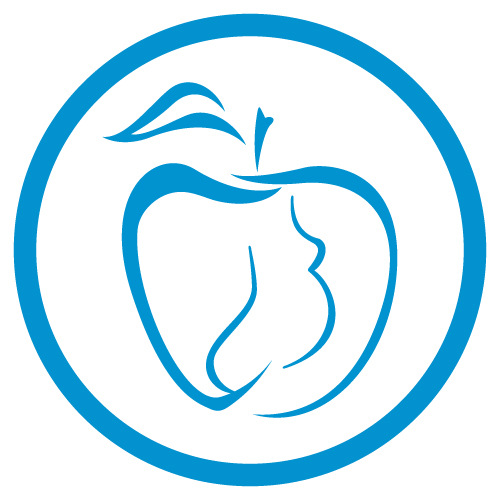
Perinatal Nutrition Lecture Pack
We all know good nutrition is important, but how much do you really understand about what good nutrition means, how to achieve it, and how it influences the perinatal period? Join our expert speakers for an in depth look at perinatal nutrition and the impact on both the birthing parent and infant.
This special package will provide information on optimizing perinatal nutrition to support birth, recovery and maternal mental health, translating nutritional guidelines to everyday practice, nutritional management of obesity, Indigenous wisdom and functional medicine and nutrition therapy for gestational diabetes.
Don’t miss this amazing opportunity to learn from Crystal Karges, Swati Scott, Rhea Williams, Ihotu Ali, and Teri Hernandez. Add important clinical knowledge and skills to your toolkit to help ensure optimal outcomes for your clients.


Ihotu Jennifer Ali, MPH, LMT, CLC (she/her) is a doula, public health educator, researcher, and integrative massage therapist specializing in myofascial release therapies including the Arvigo Techniques of Maya Abdominal Therapy®, Craniosacral Therapy, Prenatal, and Infant Massage as a Spinning Babies Aware Practitioner®. She is founder and owner of Black Moon Bodywork, LLC which offers massage therapy blended with health coaching in integrative and indigenous practices to support hormone balance, digestion, sexual and reproductive health, and reproductive justice.
Ihotu’s decade of experience in femme and family health includes years as a DONA certified birth doula and lactation counselor, prenatal yoga teacher and dancer, rape crisis counselor, Institute for Integrative Nutrition coach, and director of pre-conception health programs funded by the March of Dimes. She has collaborated with midwives and physicians in Haiti, Nigeria, Congo, and Morocco, and worked in health policy and research with the U.S. Congress, Clinton Foundation, United Nations Millennium Development Goals, and Columbia University’s School of Public Health. Raised between Minnesota, New York City, and West Africa with respect for both indigenous and evidence-based medicine, Ihotu strives to offer innovative care that is affordable, consent- and trauma-informed, gender fluid and ancestrally rooted. Her writing, public speaking, and coaching brings together emerging science in hormones and gut-brain health, functional medicine, Reproductive Justice and Afrofuturism movements. She offers an intercultural commentary on the busy modern lifestyles, social pressures, and unresolved trauma often at the root of today’s chronic health conditions.
Objective 1: Discuss indigenous postpartum foods and practices as centered around extended family support, and based on the globally widespread concept “warming” the body from a “cold” state of losing the heat and fluids of pregnancy.;
Objective 2: Discuss a functional medicine view on the postpartum body as a depleted state, with respect to adrenal and thyroid function, loss of progesterone, sluggish circulation and digestive systems, and possible connections to postpartum mood.;
Objective 3: List specific foods, spices, supplements, practices, and affordable ways that friends, family, and birth professionals can support postpartum families, especially those with previous history of health challenges, difficult pregnancies, or long or traumatic births.;
Indigenous practices around pregnancy, birth and postpartum have become wildly popular, and some even controversial, from rebozo belly sifting and Bengkung binding to herbal massage oils and vaginal steams. This presentation will dive deeper to explore the theories and assumptions behind certain lineages of indigenous postpartum care (Traditional Chinese Medicine, Mayan and Nigerian), their analysis of the postpartum body as in a “cold state,” and common warming foods and practices. We will also look at the theories behind functional medicine and compare the two perspectives – both ancient and emerging science - in their common view of the postpartum body as being in a depleted state in need of nourishment.
Given the lack of standard postpartum care and the high rates of postpartum depression and mood disorders, a family-oriented and public health approach is proposed here, at the intersection of both indigenous and functional medicine. Both early research and generational wisdom suggest that integrative postpartum care focusing on regular warm broths and baths, anti-inflammatory foods, and nourishing the hormonal, digestive and circulatory systems can relieve new parents’ swelling, joint pain, constipation, hot flashes, energy and mood, especially for those with health conditions, after a difficult pregnancy, or a long or traumatic birth.


Swati Scott is a well accomplished community dietitian and lactation consultant working in Victoria, BC, Canada. Her experience spans across public health, acute care, primary care, education and most recently in community health. She has focused extensively on maternal- infant health and nutrition in the early years. She fervently helps families make mealtime the bridge between nutrition and a time for connection. She believes that prenatal nutrition, breastfeeding, healthy family meals set the stage for robust health. She continues to play an active role in local, provincial and global committees that serve maternity, infancy and the early years. She keeps herself updated with new research and continues to solidify her knowledge and skills through participation in baby friendly networks and conferences on childhood nutrition and perinatal health.
Objective 1: Demonstrate how to access nutritious food choices for optimal prenatal nutrition;
Objective 2: Explain that breastfeeding support is valuable because breastmilk is the optimal nutrition for the first 6 month of life;
Objective 3: List ways to establish good dietary habits for moms, their babies, and their families;
We will explore how the current nutrition guidelines coincide with the mothers awareness of prenatal nutrition based on their economic status, family circumstances, access to healthy foods and medical conditions that may impact their diet during that time. Participants will also be able to support their clients by enhancing their knowledge on optimal nutrition during lactation and postpartum recovery. The presentation also aims to shed light over the need for rest and shifting baselines of what is expected with a newborn in the life of a family. We will also learn about how families under our care can transition their babies to solid meals and emphasize how access to healthy foods and regular physical activity can create a healthy body image from the start.


Dr. Teri Hernandez is the Associate Dean for Research and Scholarship in the College of Nursing and an Associate Professor of Medicine and Nursing at the University of Colorado. Over 19 years at CU, she has developed a program of research exemplified by the execution of carefully controlled clinical studies focused on nutrition, metabolic health, and early life exposures. The goal of these studies is to illuminate ways to improve the lives of women, infants and their families using a multidisciplinary team science approach. Teri is a cardiac nurse by training. She has a dedicated commitment to understanding insulin resistance as both an adaptation and as pathology. Her research focuses on diabetes/obesity, pregnancy, and fetal growth, with an emphasis on how nutrition and metabolism influence these conditions. She and her research team (Infant GOLD, Investigations in the Gestational Origins of Lifelong Development) have a research program focused on in-utero programming influences and through this platform, she is committed to training high-caliber clinical investigators. Dr. Hernandez is an educator in the graduate school at CU, serves as Director for the Colorado Clinical and Translational Research Institute Early Life Exposures Research program, and is a Pediatric Nurse Scientist at Children’s Hospital Colorado.
Objective 1: Describe the powerful influence of nutrition in pregnancy on glucose, lipids and infant adiposity;
Objective 2: Discuss the metabolic similarities across pregnancy phenotypes;
Objective 3: Compile recommendations for nutrition in pregnancy and gestational diabetes based on current evidence
Nutrition has a powerful and lasting influence on maternal and fetal outcomes in pregnancy. In gestational diabetes (GDM), nutrition therapy remains the primary approach to treatment and we now understand that lessons from nutrition in GDM may be applied to all pregnancies. Recent data underscore metabolic similarities in patterns of glycemia and lipemia between diet-controlled GDM and maternal obesity without GDM. This highlights an opportunity to more thoughtfully target women with obesity outside of GDM, where macrosomia rates are high, for treatment with nutrition. The importance of good nutrition for all pregnant women was recently highlighted by data demonstrating strong associations between fasting and postprandial triglycerides and neonatal adiposity outside of GDM, further supporting a role for targeting these nutrition sensitive indicators. Currently, evidence does not support one particular nutritional approach to treatment of GDM. The quality of the available evidence is poor due to high heterogeneity. However, a recent meta-analysis across 18 RCTs and 8 diet patterns demonstrated that any modification which improves from intake at GDM diagnosis is effective in reducing fasting and postprandial glucose, and lowering infant birthweight. The goal is balanced, affordable and culturally acceptable nutrition for women with GDM, extending to all pregnancies.


Crystal Karges, MS, RDN, IBCLC, is a Maternal Health Specialist, Child Feeding Expert, and Food & Body Image Coach for Mothers. Crystal is passionate about helping mommas build a peaceful relationship with food & their bodies so they can confidently nourish themselves & their kids and bring joy back to eating. Crystal is committed to providing holistic, compassionate, and evidence-based nutrition care to mothers and families worldwide through her online blog and virtual nutrition coaching practice. Find more motherhood and meal time inspiration at www.crystalkarges.com
Objective 1: Recite the specific and major nutrient needs that women have during pregnancy, postpartum and lactation;
Objective 2: Describe the unique challenges that perinatal women may face in regards to meeting their nutrient needs, as well as the associated and potential consequences;
Objective 3: Demonstrate how to better support overall nutrient needs for mothers by including nutrition as part of a perinatal treatment plan
The perinatal period, including pregnancy and postpartum, is a unique time in a woman's life that presents with increased nutritional needs. A majority of women may find it more challenging to meet increased nutritional needs due to the overwhelming demands and stressors that are associated with this time period. Risks of inadequate nutrition during the perinatal period can include prolonged healing and increased risk of maternal mental health disorders, including postpartum depression. Perinatal health professionals can play a crucial role in helping women optimize their nutritional needs during pregnancy and postpartum to support birth, recovery and improve maternal mental health outcomes.


Raised with her Penobscot culture and Native American spiritual practices, Dr. Jus Crea realized the healing powers of nature at a young age. Rich with ancestral knowledge of healing, medicine, and midwifery, Dr. Jus Crea received a Doctorate in Naturopathic Medicine from the University of Bridgeport and a BS in Ethnobotany and Holistic Health from UMass, Amherst. She has also been trained as an auricular acupuncture detox specialist at Lincoln Hospital, WTS therapy for restorative healing as well as Indigenous Midwifery with Mewinzha Ondaadiziike Wiigaming. She is also a Certified Indigenous Breastfeeding Counselor. Dr. Jus Crea has lectured extensively on herbal medicine, ethnobotany, midwifery, naturopathic medicine, environmental medicine, and cultural history and traditions of Wabanaki people. She was previously an adjunct professor of Nutrition at Springfield College and Pathology at STCC as well as a primary care physician in Brattleboro VT. Dr. Jus Crea has been practicing Naturopathic Family Medicine at The Integrative Health Group in Springfield MA since 2005.
Topic: The Importance of Gut Flora in Perinatal Nutrition - [View Abstract]
Objective 1: Describe what gut flora is and how our gut flora gets out of balance;
Objective 2: List what illnesses are contributed to by lack of gut flora and/or imbalanced gut flora.;
Objective 3: Demonstrate how to balance gut flora with nutrition and supplements.
Optimal gut flora balance is an important part of perinatal nutrition. Our gut microbiome plays a critical role in the prevention of many illnesses and chronic disease. Gut flora can be impacted from genetic and environmental factors including poor diets, antibiotics, cesarean sections, formula feeding, and stress. It is important to optimize gut flora as part of perinatal nutrition for the optimal health of the newborn. Optimal gut flora balance is necessary for balanced immune function, digestive health, preventing chronic metabolic disorders, and mental health. Promoting optimal gut flora in maternal nutrition can aid the health of the newborn baby.


Theresa Nesbitt, RN MD ("Dr. Theresa") is an Obstetrician-Gynecologist with special training in Maternal Fetal Medicine. Her interests these days lie in promoting lifelong wellness for women with a focus on nutrition, reproductive health and breastfeeding. She is the Director of Family Health Coaching, editor of Babies and Breastfeeding Magazine and author of Evolutionary Eating: How We Got Fat and 7 Simple Fixes. She anticipates publication of her newest book Building a Baby Brain Bite by Bite - How to Eat Before, During and After Pregnancy next year. Her interest in brain growth and development, nutrition and developmental kinesiology have helped her to look at placentation, lactation and nutrition for reproductive fitness through a new lens.
Topic: Building a Baby Bite by Bite - [View Abstract]
Objective 1: Why nutrients are more important than nutrition;
Objective 2: Why human prenatal development differs dramatically from other mammals;
Objective 3: How dietary deficiencies can alter perinatal morbidity in mothers and infants.
What does it take to build a baby brain from scratch? This presentation focuses on fertility, pregnancy, placentation and lactation - and the role nutrients and toxins play in optimizing fetal brain growth and development. Facts and Fictions including prenatal vitamins, omega 3 fatty acids and "avoidance foods" will be discussed.
Accreditation
CERPs - Continuing Education Recognition Points GOLD Conferences has been designated as a Long Term Provider of CERPs by the IBLCE--Approval #CLT114-07. This program is approved for 6 CERPs (6 R-CERPs).
Midwifery CEUs - MEAC Contact Hours This program is accredited through the Midwifery Education & Accreditation Council (MEAC) for 6 Contact Hours or 0.6 CEUs. Please note that 0.1 MEAC Midwifery CEU is equivalent to 1.0 NARM CEUs
If you have already participated in this program, you are not eligible to receive additional credits for viewing it again. Please send us an email to [email protected] if you have any questions.Tags / Categories
(IBCLC) Development and Nutrition, (IBCLC) Maternal, (IBCLC) Maternal, (IBCLC) Psychology, Sociology, and Anthropology, Birth Practices & the Microbiome, Gestational Diabetes & Insulin Resistance, Infant Nutrition, Postpartum Care
How much time do I have to view the presentations?
- The viewing time will be specified for each product. When you purchase multiple items in your cart, the viewing time becomes CUMULATIVE. Ex. Lecture 1= 2 weeks and Lecture Pack 2 = 4 Weeks, you will have a total of 6 weeks viewing time for ALL the presentations made in that purchase.
- Time for viewing the talks begins once you purchase the product. For Live Webinars & Symposiums, the viewing period begins from when the live event takes place. Presentations can be accessed 24/7 and can be viewed as many times as you like during the viewing period.
What are bundled lectures?
- Presentations may be available individually or via a bundled package. Bundled lectures are a set of lectures that have been put together based on a specific category or topic. Some lectures will be available in both individual and lecture form, whereas others will be available only via a bundled lecture pack.
Will there be Handouts?
- YES! Each lecture comes with a PDF handout provided by the Speaker.
Some lectures include a Q&A, what does that mean?
- During our online conferences, presentations that occur live are also followed by a short 15 minute Question & Answer Session. The Speaker addresses questions that were posted by Delegates during the presentation. We include the recording of these Q&A Sessions as a bonus for you.
How can I receive a Certificate?
- If this presentation offers a certificate, once you are done viewing the lecture or the lectures within a bundle, submit your attendance record in order to be able to download your certificate. You'll be able to see which credits are offered for the lecture by hovering over the "Credits Available" link within the "Speakers & Topics" tab.
Professionals that selected this package also viewed

|
|

|








